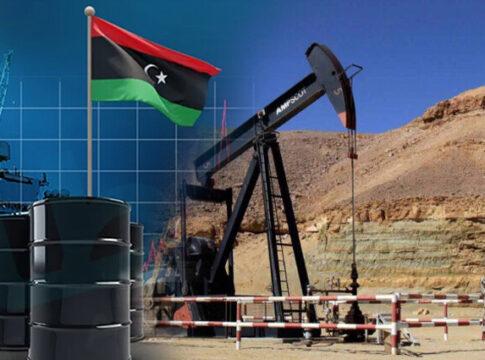In a significant development for the North African oil landscape, Italian energy giant Eni and British petroleum behemoth BP have recommenced hydrocarbon exploration in Libya, marking their return after a decade-long hiatus caused by the country’s civil strife. The decision underscores a cautious optimism in the region’s stability and strategic importance in global energy markets.
The National Oil Corporation (NOC) of Libya announced that Eni began its exploration activities in the Ghadames Basin, northwest Libya, with the first exploratory well, labeled A1-96/3, being drilled as part of the 2007 Type IV Contracting Agreement. Operating in partnership with BP and the Libyan Investment Authority, Eni’s efforts mark a pivotal moment in rebuilding confidence in Libya’s energy sector, which has been marred by political instability and conflict.
The site, approximately 22 miles from the Wafa field and close to the Algerian border, is anticipated to tap into promising geological formations thought to contain significant oil and gas reserves. Spearheaded by Mellitah Oil & Gas, a joint venture between NOC and Eni, this venture seeks to revive and expand Libya’s oil output capabilities, which had plummeted due to internal conflicts and operational disruptions.
Libya, Africa’s top oil producer, has faced fluctuating outputs, recently producing around 1.2 million barrels per day; however, production had sharply declined during a crisis period tied to leadership turmoil at the Central Bank. The recent stability, marked by the appointment of Naji Mohamed Issa Belqasem as Central Bank governor, could signal a more favorable climate for sustained energy operations.
In addition to Eni and BP, the NOC has confirmed that Spain’s Repsol is preparing to resume drilling in the Murzuq Basin, and Austria’s OMV is set to begin operations in the Sirte Basin. These movements reflect a broader trend of Western energy companies renewing their commitments in Libya, driven by the potential for lucrative returns in a historically oil-rich region.
Despite the promising developments, experts caution about the enduring risks associated with operating in Libya. The region remains fraught with political tensions, and past disruptions—such as those during the Central Bank crisis—underscore the fragility of operational stability. Nonetheless, the renewed drilling efforts by Eni, BP, and other international players highlight a strategic bet on Libya’s potential to reemerge as a central hub in the global energy supply chain.
This resurgence of activity also aligns with global energy shifts, where securing diverse and stable energy sources is becoming increasingly critical. As Libya navigates its internal challenges, the involvement of major international oil companies could play a crucial role in stabilizing and reinforcing its economic landscape.
With these developments, industry observers will watch closely to see how Libya’s energy sector evolves and integrates into the broader global market, potentially shaping the future of energy dynamics in the region.


